DS Automobiles DS 4 vs Jeep Compass – Differences & prices compared
Compare performance, boot space, consumption and price in one view.
Find out now: which car is the better choice for you – DS Automobiles DS 4 or Jeep Compass?
The DS Automobiles DS 4 (Hatchback) comes with a Diesel engine and Automatic transmission. In comparison, the Jeep Compass (SUV) features a Petrol MHEV, Plugin Hybrid or Electric engine with Automatic transmission.
When it comes to boot capacity, the DS Automobiles DS 4 offers 430 L, while the Jeep Compass provides 550 L – depending on how much space you need. If you’re looking for more power, decide whether the 130 HP of the DS Automobiles DS 4 or the 240 HP of the Jeep Compass suits your needs better.
In terms of consumption, the values are 5.20 L per 100 km for the DS Automobiles DS 4, and 17.50 kWh2 L for the Jeep Compass.
Price-wise, the DS Automobiles DS 4 starts at 34000 £, while the Jeep Compass is available from 34200 £. Compare all the details and find out which model fits your lifestyle best!
In the showdown between the DS Automobiles DS 4 and the Jeep Compass, luxury meets rugged versatility. The DS 4 dazzles with its sophisticated design and premium interior, offering a smooth urban drive while emphasizing refined comfort. On the other hand, the Jeep Compass stands out with its off-road prowess and robust capabilities, catering to those who seek adventure beyond cityscapes.
DS Automobiles DS 4
The DS 4 stands out in the compact premium segment with its striking design and distinctive flair. Inside, it offers a blend of luxury and comfort, featuring elegant materials and cutting-edge technology that enhance the driving experience. With its engaging performance and attention to detail, the DS 4 captures the essence of modern sophistication on the road.
details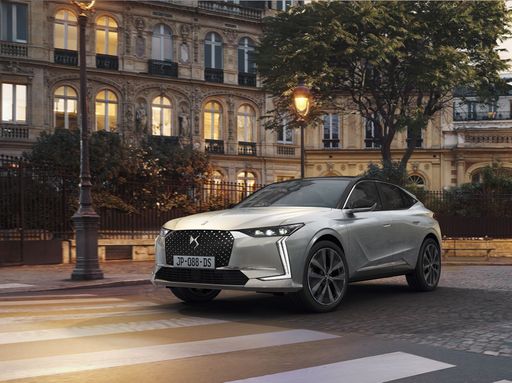 @ media.stellantis.com
@ media.stellantis.com
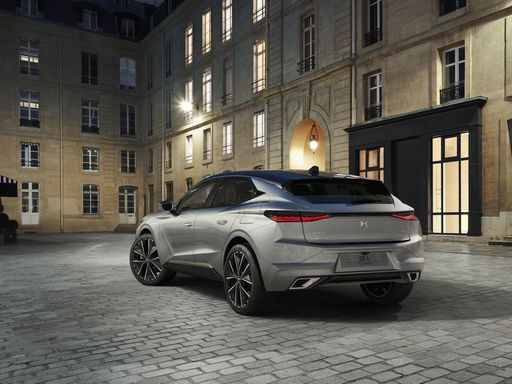 @ media.stellantis.com
@ media.stellantis.com
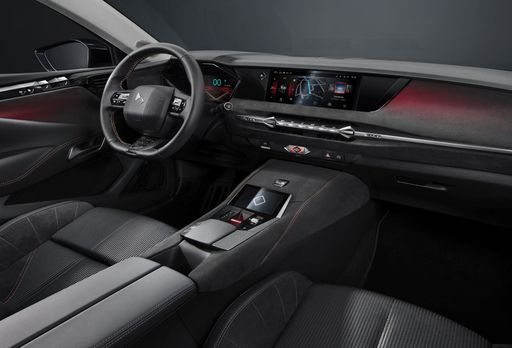 @ media.stellantis.com
@ media.stellantis.com
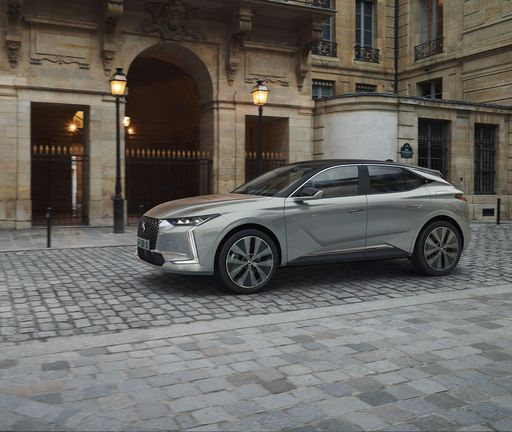 @ media.stellantis.com
@ media.stellantis.com
Jeep Compass
The Jeep Compass combines a rugged aesthetic with modern sophistication, making it a standout choice in the compact SUV segment. Its robust design is complemented by a comfortable interior that offers ample space and cutting-edge technology for a seamless driving experience. Whether tackling urban environments or venturing off-road, the Compass provides versatility and reliability, embodying the adventurous spirit synonymous with the Jeep brand.
details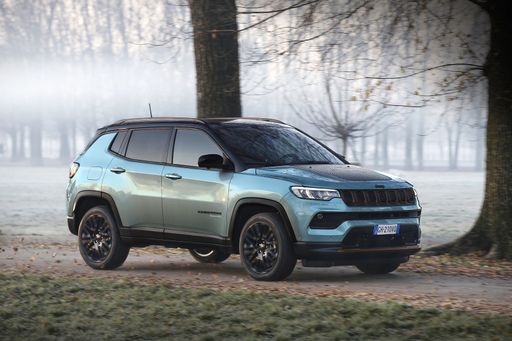 @ media.stellantis.com
@ media.stellantis.com
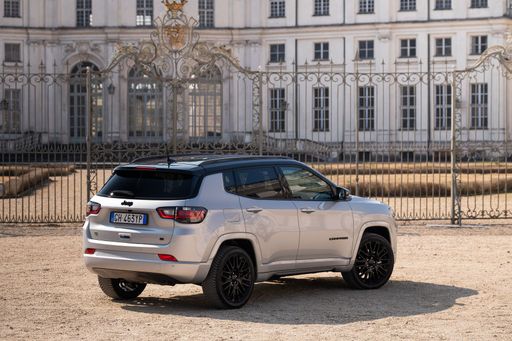 @ media.stellantis.com
@ media.stellantis.com
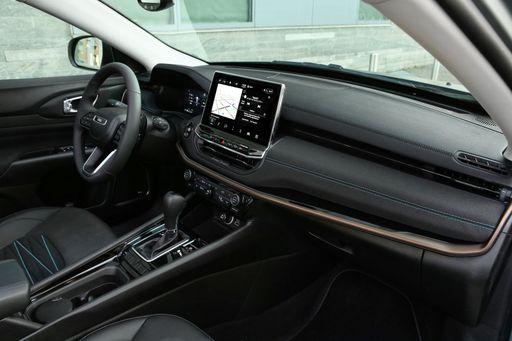 @ media.stellantis.com
@ media.stellantis.com
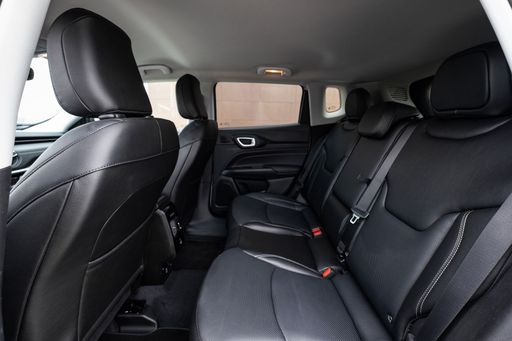 @ media.stellantis.com
@ media.stellantis.com
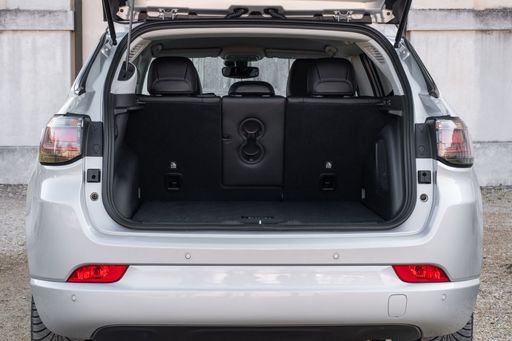 @ media.stellantis.com
@ media.stellantis.com
Battle of the Brands: DS 4 vs. Jeep Compass
In the ever-evolving world of automotive competition, the DS Automobiles DS 4 and the Jeep Compass both stand out as leading contenders, each offering unique attributes for modern drivers. Let’s delve into their technical aspects, innovations, and see how they fare against each other.
Design and Dimensions
The DS 4, categorized as a hatchback, boasts a sleek profile with a length of 4400 mm, width of 1830 mm, and a height of 1470 mm. It comes with a 5-door design catering to a stylish yet compact aesthetic. In contrast, the Jeep Compass is an SUV with a slightly more rugged appeal. Measuring 4404 mm in length, 1819 mm in width, and up to 1649 mm in height, the Compass commands a stronger road presence.
Engine and Performance
When it comes to engine options, the DS 4 offers versatility with diesel, petrol, mild hybrid electric vehicle (MHEV), and plug-in hybrid variants. Horsepower ranges from 130 to 224 HP, and it features front-wheel drive. The DS 4’s most efficient model accelerates from 0 to 100 km/h in just 7.7 seconds and can reach a top speed of 233 km/h.
The Jeep Compass offers petrol MHEV and plug-in hybrid options, with power outputs ranging from 130 to 240 HP. It offers both front-wheel and all-wheel drive configurations and can sprint to 100 km/h in a swift 7.3 seconds in its top variant. It has a maximum speed capability of up to 200 km/h.
Fuel Efficiency and Emissions
For eco-conscious drivers, the DS 4 plug-in model shines with fuel consumption as low as 1.4 L/100 km and an impressive electric range of 62 km, emitting just 32 g/km of CO2. Meanwhile, the Compass plug-in hybrid offers a commendable consumption of 2 L/100 km with an electric range of 36 km, emitting 48 g/km of CO2.
Interior and Comfort
Both cars accommodate five passengers, ensuring ample room and comfort across the board. The DS 4 offers a trunk capacity of up to 430 liters, while the Compass provides slightly more space with up to 438 liters of trunk capacity, catering well to family trips and shopping sprees alike.
Technological Innovations
The DS 4 thrives on advanced tech features, typically focusing on luxury and cutting-edge innovation, while the Jeep Compass is a blend of off-road prowess and everyday practicality. While specific tech offerings like infotainment systems and connectivity features will depend on trim levels, both vehicles integrate modern automotive technology aimed at enhancing the driving experience.
Conclusion: Choosing the Right Fit
Choosing between the DS 4 and the Jeep Compass largely depends on the buyer's lifestyle needs. The DS 4 wins fans with its luxury styling and impressive hybrid range; it's perfect for city dwellers who value style and efficiency. On the other hand, the Jeep Compass appeals to those who prefer a robust vehicle capable of handling diverse terrains while still offering modern hybrid efficiencies. Both models excel in their own rights and redefine the standards for what consumers can expect in their respective segments.

|

|
|
|
|
Costs and Consumption |
|
|---|---|
|
Price
34000 - 41700 £
|
Price
34200 - 46900 £
|
|
Consumption L/100km
5.20 L
|
Consumption L/100km
2 - 5.9 L
|
|
Consumption kWh/100km
-
|
Consumption kWh/100km
17.50 kWh
|
|
Electric Range
-
|
Electric Range
36 - 500 km
|
|
Battery Capacity
-
|
Battery Capacity
74 kWh
|
|
co2
137 g/km
|
co2
0 - 133 g/km
|
|
Fuel tank capacity
53 L
|
Fuel tank capacity
36 - 55 L
|
Dimensions and Body |
|
|---|---|
|
Body Type
Hatchback
|
Body Type
SUV
|
|
Seats
5
|
Seats
5
|
|
Doors
5
|
Doors
5
|
|
Curb weight
1558 kg
|
Curb weight
1575 - 2198 kg
|
|
Trunk capacity
430 L
|
Trunk capacity
420 - 550 L
|
|
Length
4400 mm
|
Length
4404 - 4552 mm
|
|
Width
1830 mm
|
Width
1819 mm
|
|
Height
1470 mm
|
Height
1629 - 1675 mm
|
|
Payload
442 kg
|
Payload
465 - 470 kg
|
Engine and Performance |
|
|---|---|
|
Engine Type
Diesel
|
Engine Type
Petrol MHEV, Plugin Hybrid, Electric
|
|
Transmission
Automatic
|
Transmission
Automatic
|
|
Transmission Detail
Automatic Gearbox
|
Transmission Detail
Dual-Clutch Automatic, Automatic Gearbox, Reduction Gearbox
|
|
Drive Type
Front-Wheel Drive
|
Drive Type
Front-Wheel Drive, All-Wheel Drive
|
|
Power HP
130 HP
|
Power HP
130 - 240 HP
|
|
Acceleration 0-100km/h
10.90 s
|
Acceleration 0-100km/h
7.3 - 10.3 s
|
|
Max Speed
203 km/h
|
Max Speed
180 - 200 km/h
|
|
Torque
300 Nm
|
Torque
230 - 345 Nm
|
|
Number of Cylinders
4
|
Number of Cylinders
4
|
|
Power kW
96 kW
|
Power kW
96 - 177 kW
|
|
Engine capacity
1499 cm3
|
Engine capacity
1199 - 1469 cm3
|
General |
|
|---|---|
|
Model Year
2024 - 2025
|
Model Year
2024 - 2025
|
|
CO2 Efficiency Class
E
|
CO2 Efficiency Class
D, B, A
|
|
Brand
DS Automobiles
|
Brand
Jeep
|
DS Automobiles DS 4
Introducing the DS 4: A Unique Blend of Luxury and Performance
In the competitive world of automotive design, the DS Automobiles DS 4 stands out as a remarkable fusion of elegance, cutting-edge technology, and impressive performance. This hatchback, which continues to captivate enthusiasts since its launch, showcases a commitment to delivering a premium driving experience combined with innovative solutions that adapt to the demands of modern drivers.
Dynamic Engine Options for Every Driver
The DS 4 is available in a variety of engine configurations, catering to diverse preferences among drivers. It features a range of powertrains including diesel, petrol, mild hybrid electric vehicles (MHEV), and plug-in hybrids. With options like the 130 HP BlueHDi Diesel and the Hybrid 136 Petrol MHEV, each vehicle is designed to deliver efficient performance. The plug-in hybrid variant, boasting a robust 224 HP, offers an electric range of up to 62 kilometers, making it ideal for urban commuting while supporting eco-friendly initiatives.
Impressive Technical Specifications
With an array of technical specifications, the DS 4 provides both power and efficiency. For instance, the 130 HP PureTech petrol engine is coupled with a smooth automatic gearbox that enhances the overall driving experience. Depending on the variant, the DS 4 achieves impressive acceleration figures, with the Plug-in Hybrid reaching 0-100 km/h in just 7.7 seconds.
Fuel efficiency is another strong point, particularly with the BlueHDi Diesel's consumption rate at 5.2 L/100 km. The vehicle’s CO2 emissions also vary across models, with eco-friendly options like the plug-in hybrid showing a commendable 32 g/km. This range of specifications allows drivers to choose a version that suits their style and needs while maintaining a focus on sustainability.
High-End Comfort and Innovative Technology
DS Automobiles has prioritized luxury and comfort in the DS 4, ensuring that every journey is enjoyable. With a spacious interior featuring elegant materials and thoughtful design elements, the DS 4 incorporates advanced technology seamlessly. The car boasts a range of trims, including the Collection "Antoine de Saint Exupéry" and Étoile Alcantara, offering various customization options for a personalized driving experience.
The technology highlights of the DS 4 include a state-of-the-art infotainment system and advanced connectivity features that keep drivers connected and entertained on the road. The inclusion of driver assistance systems enhances safety and facilitates a more relaxed driving experience, allowing the driver to focus on the joy of driving.
Safety Meets Innovation
Safety is paramount in the design of the DS 4, which comes equipped with a suite of advanced safety technologies. These include lane-keeping assist, adaptive cruise control, and parking sensors, all contributing to a robust safety profile. The vehicle’s structure and safety features have been engineered to protect passengers and enhance overall collision performance.
Conclusion: A Modern Classic in the Making
The DS 4 by DS Automobiles represents the future of hatchback design, weaving together luxury, performance, and innovative technology into a cohesive package. Its diverse engine choices, cutting-edge safety features, and lavish interiors make it a compelling option for those seeking a vehicle that stands apart in style and functionality. As automotive enthusiasts continue to seek vehicles that are not only practical but also a joy to drive, the DS 4 is well-poised to make its mark in the automotive landscape.
Jeep Compass
Exploring the Jeep Compass: A Modern SUV with Innovative Features
The Jeep Compass continues to challenge the boundaries of what an SUV can be, offering a blend of practicality, efficiency, and rugged appeal. This model, distinguished by its diverse range of powertrains, promises to cater to various needs and preferences. From urban commuting to exploring off-road trails, the Compass delivers with aplomb.
Engine Versatility and Performance
Under the bonnet, the Jeep Compass offers a diverse lineup of engines designed to meet varying driver demands. With options ranging from mild hybrid petrol engines to advanced Plug-in Hybrid Electric Vehicles (PHEVs), the Compass provides both efficiency and power. This impressive engine choice results in power outputs from 130 to 240 PS, ensuring that there is a model suitable for both city driving and more ambitious off-road excursions.
Performance devotees will appreciate the Compass's quick acceleration, clocking 0-100 km/h in as little as 7.3 seconds. Meanwhile, fuel economy remains commendable, with consumption figures between 1.7 to 5.5 litres per 100 kilometres, making the Compass an economical choice for daily driving.
Innovative Hybrid Technology
The Jeep Compass brings cutting-edge hybrid technology to the forefront. The available plug-in hybrid variants offer electric-only driving ranges of up to 53 kilometres, ideal for environmentally conscious urban drivers. This zero-emission capability makes short trips sustainable without compromising on the flexibility offered by the internal combustion engine for longer journeys.
Dynamic Drivetrain Options
One of the main talking points of the Compass is its adaptable drivetrain options, which include both front-wheel drive and all-wheel drive systems. The 4xe PHEV models particularly stand out with their all-wheel drive, providing enhanced stability and traction suitable for varying terrains. Additionally, the automated transmission ensures smooth gear changes and an overall comfortable driving experience.
Design and Comfort
Beyond performance, the Jeep Compass excels in providing a stylish and functional environment. The SUV's dimensions, ranging between 4398 to 4404 mm in length and up to 1874 mm in width, offer ample interior space for both passengers and cargo. The boot space varies from 420 to 438 litres, accommodating the needs of families and adventure-seekers alike.
With seating for five, maximum comfort is assured, thanks to high-quality materials and thoughtfully designed interiors. The Compass integrates advanced technology seamlessly into its cabin, ensuring easy connectivity and an engaging driving experience.
Safety and Efficiency
Safety is paramount in the Jeep Compass, with a range of driver assistance features providing peace of mind. The model adheres to impressive CO2 efficiency standards, boasting a CO2 emission range between 37 and 123 g/km, making it both a responsible and reliable choice.
Furthermore, the Compass offers competitive running costs, with monthly expenses ranging from €1,095 to €1,315, and an average cost per kilometre between 43.8 and 52.6 cents. This cost-effectiveness further underscores the Compass’s value proposition.
Conclusion
Overall, the Jeep Compass stands out as a richly equipped, versatile SUV, ready to tackle urban or off-road challenges. With its blend of powertrain innovations, superior performance, and sophisticated design, it redefines what’s possible in the SUV segment. Whether for efficient city driving or adventurous journeys into the unknown, the Compass is ready to rise to the occasion.
The prices and data displayed are estimates based on German list prices and may vary by country. This information is not legally binding.
